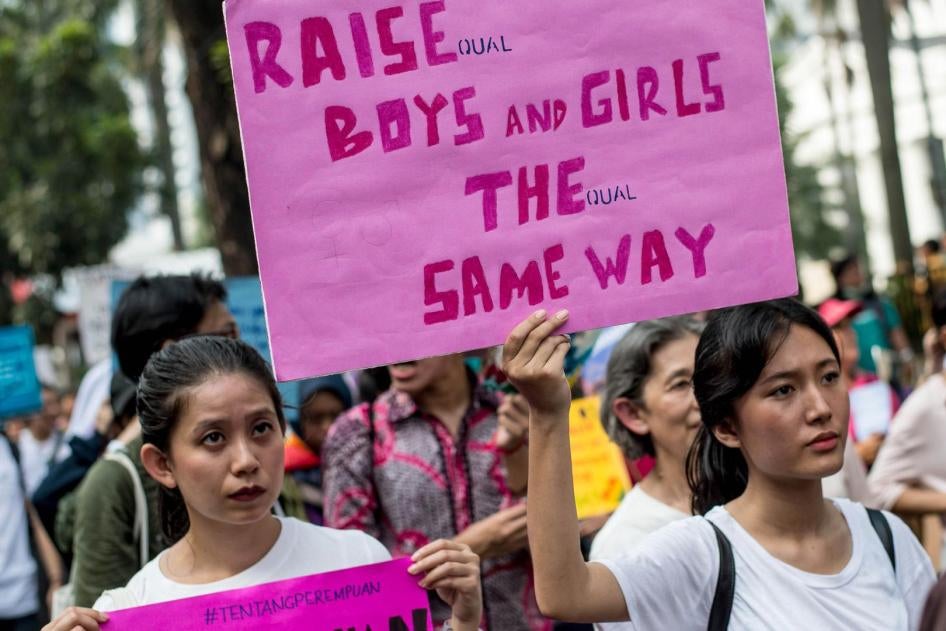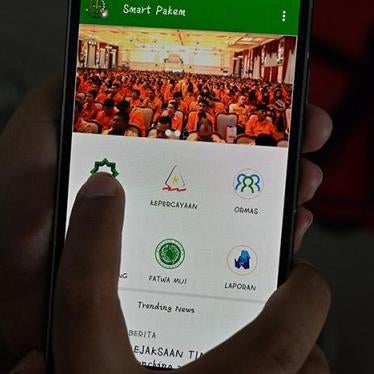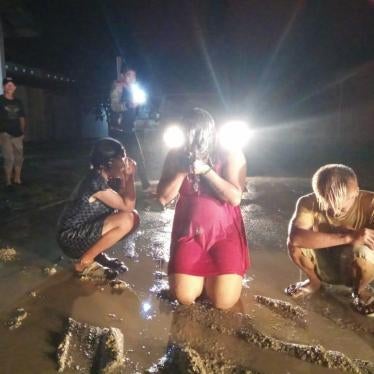(Jakarta) – Indonesian President Joko “Jokowi” Widodo’s administration took few steps in 2018 to protect the rights of marginalized groups in Indonesia, Human Rights Watch said today in its World Report 2019.
In August 2018, Jokowi issued a plea for religious tolerance in the context of continuing harassment and discrimination against religious and gender minorities. But authorities still arrest and prosecute people under the blasphemy law, and courts sentenced six to prison in 2018. Lesbian, gay, bisexual, and transgender people in Indonesia have faced increasingly violent, intimidating, and humiliating police raids that violate their rights to privacy.
“President Jokowi chose not to spend political capital by undoing discriminatory regulations or protecting minorities from abuse,” said Elaine Pearson. “It’s not only increasing the risks among marginalized groups but encouraging Islamist militants.”
In the 674-page World Report 2019, its 29th edition, Human Rights Watch reviewed human rights practices in more than 100 countries. In his introductory essay, Executive Director Kenneth Roth says that the populists spreading hatred and intolerance in many countries are spawning a resistance. New alliances of rights-respecting governments, often prompted and joined by civic groups and the public, are raising the cost of autocratic excess. Their successes illustrate the possibility of defending human rights – indeed, the responsibility to do so – even in darker times.
Indonesia’s Commission on Violence against Women (Komnas Perampuan) reported that hundreds of discriminatory national and local regulations are harming women. They include local laws compelling women and girls to wear the jilbab, or headscarf, in schools, government offices, and public spaces.
The Jokowi administration failed to lift restrictions on foreign journalists from visiting Papua and West Papua provinces, and Indonesian journalists face controls and surveillance there. This hindered efforts to report on an attack by Papuan militants in December that killed at least 17 people.
The Jokowi government took some positive steps in addressing land-grabbing to curb dispossession. In February, with World Bank support, Jokowi initiated a program to register all land in Indonesia, including disputed areas, by 2025. He announced a moratorium on oil palm plantations, which are linked to deforestation, climate change, and abuses against indigenous peoples, instructing his ministries to stop issuing new plantation permits on state forests until 2021.
Many indigenous and peasant rights groups contend that moratoriums and land certification alone are insufficient to resolve land disputes. In 2017, the Agrarian Reform Consortium documented 659 land-related conflicts, affecting more than 650,000 households.
The Indonesian government has taken promising steps to end shackling of people with mental health conditions, reducing the number who are shackled or locked up in confined spaces from nearly 18,800, the last reported figure, to 12,800 in July, according to government data.
“Some progress on land rights and disability rights is encouraging, but President Jokowi should redouble his efforts to protect the rights of all Indonesians at risk,” Pearson said.









